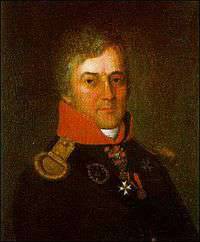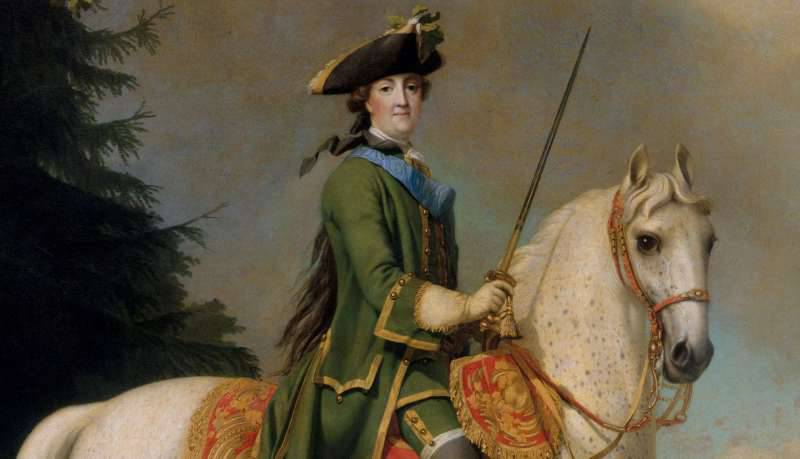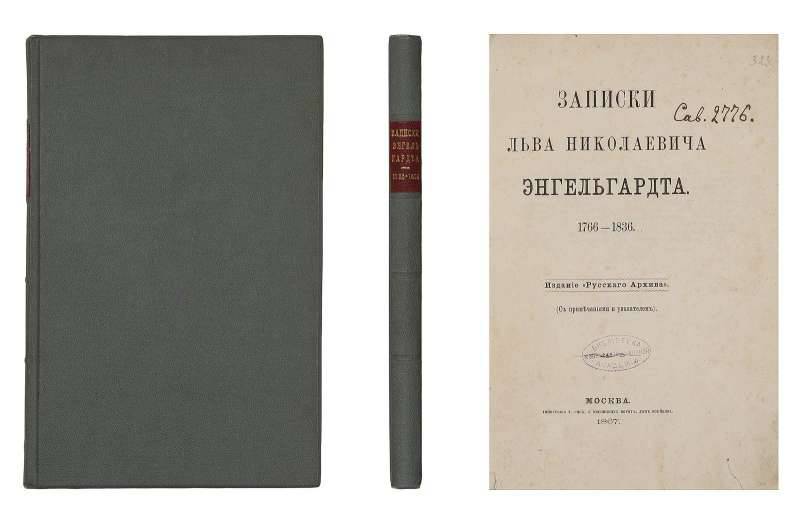Spies Return. Part of 2
At the beginning of the XVIII century. Sorbonne theologians decided that the Russian government was inclined towards the union of the Orthodox and Catholic churches. Shortly after the death of Peter I, taking advantage of the return to Russia of Princess I. P. Dolgorukova, who secretly converted Catholicism to Holland in 1727, they sent the Jesuit Jübe under her disguise as a home teacher. Jübe began to explore the situation in Russia for the union and to compile secret reports to the Sorbonne.
In the meantime, a group of Russian aristocrats close to it, united around some of the princes Dolgorukovs, was making plans to change the ruling dynasty.
It was assumed that in Russia after the conclusion of the union, the patriarchate, abolished by Peter I in 1721, would be restored. The Uniate Patriarch was to ensure the full actual holding of the union and, with his authority, support the political plans of Dolgorukov, stretching even further. For lack of a better candidate, the patriarchs of a thirty-year-old Yakov Dolgorukov, who received education from the Jesuits abroad, were appointed.
The soul of the whole adventure was Vasily Lukich Dolgorukov, Uncle Jacob. He studied in Paris, led a friendship with the Jesuits there and, according to a biographer, gained a lot from them. Returning to Russia, he quickly made a diplomatic career. A clever intriguer, a member of the Supreme Privy Council, that is, one of the most powerful people in the country, he, along with his closest relatives, decided to raise his niece to the royal throne after the death of Peter II. A fake testament of the king had already been prepared. But this plan failed, and in L. X. NUMX, V. L. Dolgorukov was executed.
Princess I.P. Dolgorukova hastened to renounce Catholicism.
The Jesuit venture with the union and the revival of the patriarchate was part of plans to exalt the kind of princes Dolgorukov. There is information that a group of prominent Orthodox churchmen had already been recruited for the same unenviable role, which in Lithuania at the end of the XVI century. the bishops who led the Brest Church Union with the Vatican played (The information is taken from the book by R. Pierling La Russie et le Sainte-Siege, vol. IV, Paris, 1907, p. 350).
"The Spanish ambassador to Russia, Count Liria, was the backstage spring of a conspiracy, secretly representing the interests of the Vatican in this matter." In order to protect Jesuit Juhebe from troubles with the authorities, he disguised him as his confessor and, for greater security, provided him with a diplomatic passport. However, this did not save Zhube from being expelled from Russia in 1732 (this conspiracy was also written by F. Uspensky, Rome Relations with Moscow, magazine Ministry of Public Education, 1884 No. 10, pp. 333-340; S. M. Solovyov in "Stories Russia since ancient times ").
Liriah in his notes for good reason lamented the fall of Dolgorukov, although, of course, he was silent about the adventure with the religious union (“Letters about Russia to Spain duca de Lirias”, collection Osmvatyi Vek, prince 2 and 3, M., 1869).
The official sharp condemnation of the exiled Jesuit order did not prevent the anti-patriotic Russian aristocrats from secretly bowing before it. These well-wishing Jesuits belonged to Empress Catherine II. Forced to scold them publicly, she secretly tried her best to protect them from criticism.
The extent to which this desire has come is evident at least by the following example. In 1769, a small dissertation of Moscow University D.S. Anichkov was published “Discourse on the beginning and occurrence of natural worship”, which extremely anchored the “most holy” synod by the fact that it was almost openly expressed thoughts about religion. Apparently, only the fear of the government to draw public attention to this case saved Anichkov from the punishment provided for freedom of thought in matters of religion by the king's laws.
In the same year, under the modified title, the second edition of this book was published, from which the author excluded (probably unwillingly) “free-thinking places”. Among them was the next place - in it the censors, of course, saw either the condemnation of the empress, who secretly patronized the Jesuits.
“The Ezuits,” wrote Anichkov, “are the shepherds of Christ's flock, who are so deservedly hated by the whole world, private of piety make interest, extending greedy hands to insatiable avarice, and in the name of salvation they ruin the flock entrusted to themselves from God and entrusted to the monarchs by making faith itself is a veil of false opinions ”(D.S. Anichkov,“ Discourse on the beginning and occurrence of natural worship ”, M., 1769, p. 23 of the first edition).
 Several years passed, and from the secret patronage of the Jesuits Catherine was able to go to the open.
Several years passed, and from the secret patronage of the Jesuits Catherine was able to go to the open.In the 1772 year, with the first partition of Poland, Russia gained vast territories in the west and southwest. Under the following sections, they grew even more. The Orthodox population there was a minority. The Jesuits living in those places, to their greatest joy - without any trouble and diplomatic bargaining - suddenly found themselves subjects of the Russian Empire.
Apparently, at first Catherine was worried about this: almost two hundred Jesuits, unexpectedly acquired by her, were capable of delivering a lot of trouble to the tsarist administration, if they hadn’t got along with her. The Jesuits had such loud fame of eloquent speakers, experienced writers, that Catherine could seriously fear that their colleges would become centers of anti-Russian propaganda. Therefore, in a special order, she demanded from her officials "to watch for them most often ... like the smartest of all other Latin orders."
She was particularly confused by the complete subordination of the Jesuits to the Vatican as the sole sovereignty.
And at such a tense moment, the Jesuits managed to justify their reputation as quirky politicians: while other Catholic and Uniate clergy resisted the measures of the Russian administration and, in particular, sought to prevent the oath of the Belarusian population from the Russian government, the Jesuits demonstratively swore first. The political significance of this maneuver was great - he brought discord on Wednesday among the Catholic clergy and soon led to the fact that all priests and monks in Belarus, as well as believers, of whom many clergy had already managed to introduce the new faith, swore allegiance to Russia.
It was then, in the 1773 year, when their order was dissolved by Pope Clement XIV, Catherine immediately decided to take full advantage of the fact that the Jesuits in Russia had lost their international center in Rome.
She did not allow to publish the papal order in Russia. Understanding the idea of Catherine, the Jesuits of the Polish provinces of Russia appealed to her with a request to allow them to obey her father - to liquidate the collegiums, the property of the order, etc. The Empress refused.
To the Vatican’s protest, Catherine sharply replied that, “firstly, the papal complaint of patronage of Russia to the Jesuits,“ the most reliable advocates of the Latin faith, ”looks strange, and secondly,“ the empress was not used to giving orders to her within the empire ”(Yu. F. Samarin -“ Jesuits and their relation to Russia ”, ed. 3, M., 1870, p. 315).
The government hoped to use all the propaganda, school and spy experience of the Jesuit order for their own purposes. To this end, it strictly forbade any connection between the Jesuits and the Vatican and in general abroad, and subordinated them to the Catholic Archbishop of Mogilev Bogush Sestrentsevich, who later became the metropolitan - something of a royal minister for Catholic affairs.
In the end, if Catherine II was able to use the difficult situation that the Jesuit Order fell into, the Vatican won, precisely because it allowed the Jesuits to survive to a certain extent, as well as the continuity between the “old” “Society of Jesus”, what it was before the dissolution of "forever", and the "new" - after 1814, when the "eternal times" had already ended and, by the will of the triumphant reaction, the order was everywhere revived by the Vatican.
In its desire to use it as a spiritual police, the government of Catherine II neglected even such facts as, for example, the forgery of Russian paper money by the Jesuit Zanovich: this crime did not affect the government’s attitude to the order.
During the arrest, Zanovich found many thousands of fake hundred-ruble banknotes ("Notes of Lev Nikolaevich Engelhardt", M., 1867, p. 34).
How painful Catherine perceived complaints about her policy in the Jesuit issue, shows a very characteristic fact associated with the publishing activities of the famous educator N. I. Novikov.
We have just seen what a major nuisance, in 1769, brought to Anichkov his rather restrained condemnation of the activities of the “Society of Jesus”; But at that time the Jesuits were still forbidden to enter Russia. Therefore, the rage that had seized Ekaterina in 1784 of the year, when she found out about the publication of a special anti-Jesuit article in the Novikovsky publication “Addition to the Moscow Gazette”, should be understood. In fact, then the Russian empress was the patroness of the Jesuits, for more than a decade she used the espionage and propaganda services of their order, from which even the popes considered it necessary to disown, and suddenly someone's harsh judgments about the “Society of Jesus” appeared to be attached to the popular Russian newspaper. ".
The article caused sharp criticism from Catherine. September 23 1784 g. She wrote to Moscow to the chief of police chief Arkharov: “Notify me that it is as if Moscow is printing a dirty history of the Jesuit order, we order to ban such printing; and if it were published, then the copies should be taken away; for, having given our protection to this order, we cannot permit that the slightest prejudice of this should be perpetrated from anyone ”.
It would be difficult to speak out more clearly.
The article (it was printed without a signature) was called "The History of the Order of the Jesuits." The author critically reviewed briefly the history of the “Society of Jesus”, adhering to the facts and drawing from them deserved sharp conclusions. Presentation brought only to the description of the Jesuit possessions in the "South American motherland" and established there orders. Neither the author had time to say anything about the collapse of the Jesuits' Paraguayan adventure. He placed on the Jesuits heavy political and moral responsibility for many calamities:
“Whoever remembers the events that have happened in Europe over the past two centuries, he will find that the Jesuits can be justly demanded to be accountable for the harmful actions that have taken place from the corrupt dangerous casuistry, from the boundless rules of church authority and from the hatred of patience that were in everything this time is a reproach for the Roman Church and those who brought a little evil to civil society ”(“ Addition to the Moscow Gazette ”, 1784 year, No.70, p. 537).
Summer 1917 years
In the summer of 1917, a new ministry was organized in the Vatican - a congregation for the affairs of the Eastern churches. Her task was announced "the restoration of churches." Particular attention was paid to the spread of Uniatism. However, nothing serious in this respect to reach the Vatican failed - the revolution began 1917 year.
Relations with the new leadership of the country did not work out from the very first steps of the work of the missions. Primarily in Poland and the Baltic states, new centers for the unification of Vatican agents were quickly established. Sneaking into Soviet Russia was too difficult and dangerous. Therefore, in the 1922 year, the Vatican decided to send several groups legally, under the guise of a mission to organize assistance to the starving. Several such agents (among them were the Jesuits) then settled in the Crimea, Rostov-on-Don and in Moscow.
The mission was led by an experienced intelligence officer, hiding under the mask of a scientist - American Walsh. Before the mission, the Soviet government set the main condition for its work - not to interfere in the political life of the country. However, this condition was violated and the government demanded to recall the Jesuit Walsh, whose name even appeared more than once in the chronicle of the anti-Soviet speeches of Catholic clergymen abroad. So, in 1929, he made a speech in Washington in which he urged the US government not to enter into diplomatic relations with the Soviet Union. During the Second World War, he was a fierce opponent of US military cooperation with the USSR. However, another Catholic priest, Herman, who came to replace him, not only did not stop, but also strengthened the intelligence activities of the Vatican mission. And for that, she was expelled from Russia in 1924.
This was followed by several high-profile trials. So, in Georgia in the 1921-1924, the Neapolitan province of the Jesuit order operated, which relied on the Georgian Mensheviks. This was followed by the case of the Archbishop of Mogilev, Baron Ropp, who was sentenced to death with replacement by expulsion outside the country, the case of another Catholic priest, Butkevich, who spied for England, the case of Leningrad Archbishop Tseplyak, the case of xenzes in Ukraine (Zweilinsky, Zilinsky, Ukraine, Skoring, Ukraine, Xyylah in Ukraine, Skilka, Zilinsky, Ukraine, Xyylah in Ukraine, Skilka in Zilinsky, Ukraine, Xenzi in Ukraine) ). These and other processes led to the collapse of missions.
The ending should ...


Information